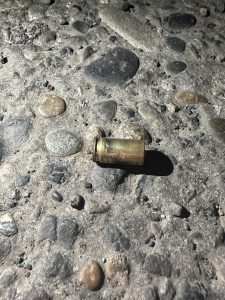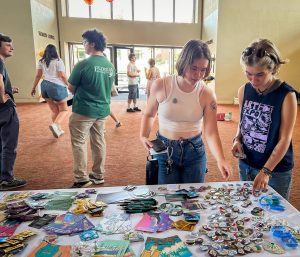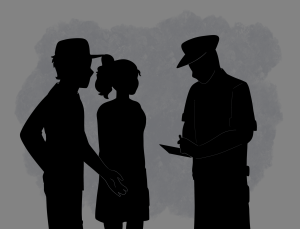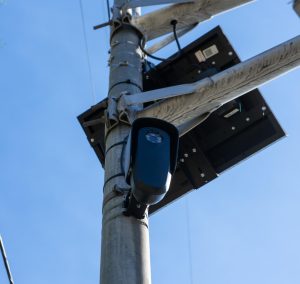Whitman on the Map: 3 International Students Trace Their Journey to a New Home
November 5, 2015
Illustration by Asa Mease.
SAU PAULO, BRAZIL. Sophomore Ludmila Cardoso de Brito took pride in contributing to her family’s income. She would step out of the door at 5:00 a.m., heading off to technical school. In the afternoon, she would go to work and in the evening, she would attend high school. At 11:00 p.m., she would arrive home with 6 hours left before the routine began again.
When she had extra time, Ludmila would read links of articles that her father would send her. One such link related her to the United World Colleges (UWC), a group of schools and colleges that, regardless of money or English fluency, brings together students from around the world. It was the first domino in a set of events that would bring Ludmila to the States, and finally to the couches in Reid where she would tell me her story.
Ludmila would frame the UWC such that if a war were to break between various countries, those places “would become more than just a country, but a place where your friends come from.”
After completing various interviews, forms, and essays, Ludmila was selected to attend a UWC in Singapore. She took her first plane trip and left home at 16 to study with hundreds of students from countries all around the globe.
When Ludmila arrived she only knew 10 words of English but she said that many other students were in the same boat, and with supportive staff and faculty the transition was a relatively smooth one.
“All of us were far from home and that became our home and those people became our family. When you are in a situation where you are living far from home with a close community, things seem so much more intense…so [when] things are good [they] seem awesome, [and when] things are bad it’s like the end of the world. When you look back at it you’re just glad you’ve been though all that.”
Ludmila studied in the IB program, and during her second year at UWC a recruiter came to school and exposed her to Whitman. It was there that something clicked.
“I fell in love with the idea of being at a small liberal arts college in the Pacific Northwest where I would be known by my name and not a number,” Cardoso de Brito said. She also loved the thought of being surrounded by sweet onion fields and mountains in a small locale like Walla Walla, an environment so different from the large, sprawling city of São Paulo.
Coming to Whitman, Cardoso de Brito knew that she would be a minority. At the UWC school, people came from all over the world so there were no “minorities” the way we think of them in the U.S. She recognized the number of international students at Whitman is small, but she also felt that there was a lot to gain from the experience. She described her school in Singapore as a place where people were open and worked to overcome cultural barriers in a diverse space. Whitman would offer a different vantage point.
“I wanted to challenge myself to get to know people that did not see things the same way … when [you] are surrounded [by] people who think the same way as you do, you do learn. But when you are faced with contrasting ideas you can talk about that and in that process you grow a lot,” she said.
With the assistance and support of advisers at UWC, Cardoso de Brito was able to apply to Whitman as well as other schools. She was accepted at Whitman, and decided to take a gap year which she spent in India before coming to Whitman in the fall of 2014.
She doesn’t know when she will have the ability to go back home during her time at Whitman. Regardless, Cardoso de Brito believes that the time away from home – both at UWC and Whitman – has had a meaningful impact.
“I left home when I was 16, so my mom saw the 16-year-old Lud go abroad to study and then [I went as] the 20-year-old Lud and somehow I feel she expected her baby back. I’m still the same person, but we change. And that is something that is also beautiful to get to know your parents again as this new person that you are and your parents getting to know you as the person you’ve become,” she said.
***
KIGALI, RWANDA. Sophomore Bonnette Ishimwe’s interest in politics and economics was what sparked her choice to study abroad. She had the chance to get into a good finance school in Rwanda, but Ishimwe says she wanted a broader view of the world.
It was a program called ‘She Can’ that focused on supporting promising young women from post-conflict countries that steered Ishimwe into a rigorous regimen that would prepare her to apply for school in the U.S. After finishing high school, Ishimwe applied to the program, and went through an application process filled with essays and interviews.
Once selected, she had to take the Test of English as a Foreign Language, an internationally recognized test, and then began training for the SAT. She prepared six days a week, from nine in the morning until five in the evening, for six months. She applied to nine schools and ultimately chose to come to Whitman.
“I saw the whole Global Studies Initiative, like how classrooms weren’t just about U.S. and Americans but [had] more of a broader sense to [them]. You don’t only talk about some specific regions, but you tap into different regions from around the world.”
When Ishimwe finally started taking classes at Whitman, she saw a global perspective where people didn’t always agree.
“When I came here, everything that I believe in was just questioned. I came here with a very strong understanding of who I [was] as a person … [but] Whitman just challenges everything you believe in and who you are. At first I didn’t really like it that much.”
Ishimwe did come to terms with the changes, and she realized that accepting it was part of growing up.
Along with having her beliefs challenged, Ishimwe also found she had to deal with the salience of race in the U.S.
“I see myself as Rwandese and whoever walks across or passes by, if they see me they’ll consider me as black. If someone knows I am an international student, [they think] I am an African. Rwanda is something nebulous to them but for me it’s my identity, it’s who I am. It was very tricky to get adjusted to that.”
Ishimwe has reached out to friends and other students who have had to deal with similar issues. It helps her get a better sense of how to deal with race and identity while she is here.
Still, Ishimwe says she is happy with the opportunities she has been given to expand and learn.
“My best thing about being here is that I know I’m not wasting my time. I know I’m actually learning something and growing.”
POKHARA, NEPAL. When junior Gambhir Kunwar was in high school, his dream was to study abroad in the United States. It was a long process, but that dream eventually came true.
An organization called the United States Educational Foundations (USEF) came to Kunwar’s school. They told him about a program called Opportunity Funding, which would cover all the upfront costs of applying to U.S. colleges, including SAT registration costs, application costs and much more.
Kunwar applied for the program. Out of 80 applicants, 16 were chosen and Kunwar was the only student chosen from outside the Kathmandu valley, where the organization was located. Kathmandu was a six hour public bus ride from Pokhara, so commuting for the program would be cumbersome. He found a way to stay in Kathmandu for the program, which guided him through SAT training, how to get teachers to write recommendation letters and how to reach out to admission’s officers – all seminars that prepped applicants for a strong application.
One of the most challenging parts of the application process was getting his teachers to write recommendation letters.
“When I went to my teachers, they were reluctant because most of them were ‘chalkboard’ [not tech-savvy enough to use the common app]. They thought I was also one of those students [who could] go … make money, [so] they wanted me to go to med school or engineering. They weren’t informed that there was [a] really good college education here [in the States].”
Many of Kunwar’s friends and classmates either went to Medical or Engineering schools in Nepal or came to the United States with the specific intent to make money. Kunwar wanted to come to a small liberal arts school solely to study.
For Kunwar, going to Kathmandu to prep for the college application process and finally coming to Whitman was like “bursting a bubble.”
While he had used English through reading and writing at school, the skills he needed to write personal essays were beyond what he was used to.
“When I was writing my college personal essays and I used to struggle with writing for sure but I felt that I am going to this college so that I can improve,” he said.
He landed an interview with an admissions officer at Whitman, which he believed helped him hone in on Whitman as his top choice.
“I wanted to get close to faculty. I [was] really scared of big universities and also it [made me] really nervous because you are going to some new place and you want it to be as safe as you want and also you know you want to get most help as possible. I saw people are really happy here,” he said.
It took Kunwar a flight from Kathmandu to Dubai, a layover, a direct 16-hour flight from Dubai to Seattle, and then another flight to Walla Walla to finally set foot on the Whitman campus. Even though it was his first time flying, Kunwar said he was excited and enthusiastic.
As soon as he arrived on campus, the heat of eastern Washington was overwhelming. He was immediately swept into the swing of things with a SCORE trip, followed by orientation and the start of classes.
“When I got here, I felt like I’d accomplished something really important,” he said.
Kunwar says his college experience has been rewarding overall, and he credits his parents as being a major driving force in his education.
“I knew that their blessings would be always with me. That was [my motivation]. I always used to think once I…graduate from College [people] will see [my] parents who never went to school having a kid graduating from college. Actually, it was them showing me the path to higher education – they were always there when I needed [them].”







